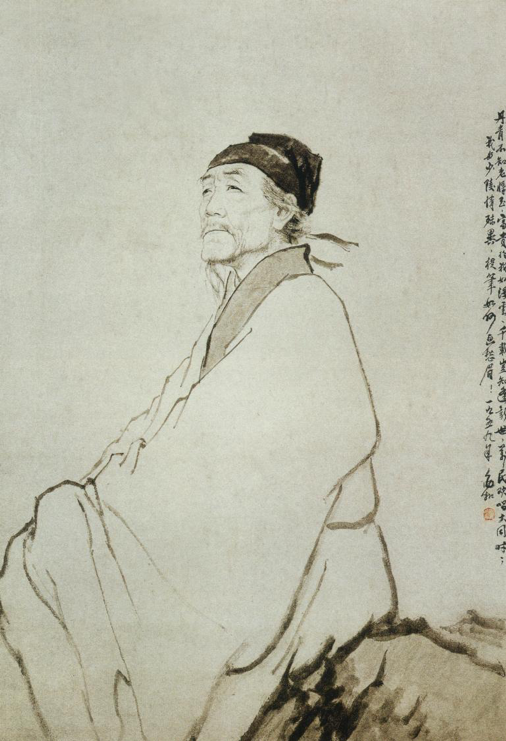One evening, the History Museum of WHU was so crowded that many students had to resort to standing throughout the entire event. They gathered here to listen to Liu Yuejin’s lecture, which was about his comprehension of Dufu, a poet who exerted a lasting influence on the history of Chinese and Japanese literature.
Dufu lived in an era when a multitude of Chinese scholars and poets surfaced while the European literary world was in a gloomy aura under the rigid governance of religion . Fierce as the peer competition was, Dufu’ s accomplishment still surpassed many notable poets’. As the “Saint of Poetry” (shi sheng in Chinese), Dufu wrote his poems in a unique style. And till now, his works are still often compared to Li Bai’s, who also has a distinct style within the history of Chinese poetry.

Portrait of Dufu
Liu Yuejin, the director of the Literature Institute, Chinese Academy of Social Sciences, was given a round of applause in the congested library hall when he appeared. He started his report with a question: why time has not dimmed the charm of Dufu’s works? Then, Liu divided his lecture into four parts. Firstly, Professor Liu showed us notable findings about Dufu’s life story, including his ancestors, family pedigree, and also the flourishing era in which he was born. In the second part—Depressed and Pause—Professor Liu narrated Du’s close communications with contemporary outstanding literators of his era, who had a profound effect on his later writing style and subjects. When it came to Dufu’s wandering and exile, Liu Yuejin mentioned that Dufu’s frustration with aging was clearly expressed in his poems. The last part was about Dufu’s literary thoughts and his poems’ practical significance, in which Professor Liu explained the reason why Dufu was so distinguished from other poets. Born in a flourishing age but dying in a broken dynasty, Dufu had never ceased to be concerned about the social problems and nation fate. Thus, his poems characterized a deep patriotism and sorrowful blame for the court.
During the whole lecture, Liu Yuejin extensively cited poems to support his opinions, not only Dufu’s works, but also many subjects written by others. After the lecture, Liu also excitedly discussed with the audience about the criteria by which people judge tragedies. One student said, “You have vividly showed us a picture of Dufu’s entire life,” when she communicated with Professor Liu.
Liu Yuejin’s lecture is just one of the lectures of Luojia Forum, an academic activity that has been well-received by WHUers. Scholars from WHU and other universities are invited to WHU to give a lecture in their specialized fields to WHUers, which has been a boon to WHUers as they can broaden their horizons and gain more extensive knowledge on a variety of subjects.
(Edited by Li Minjia, Wang Wei, Edmund Wai Man Lai, Liu Jiachen and Liu Xiaoli)